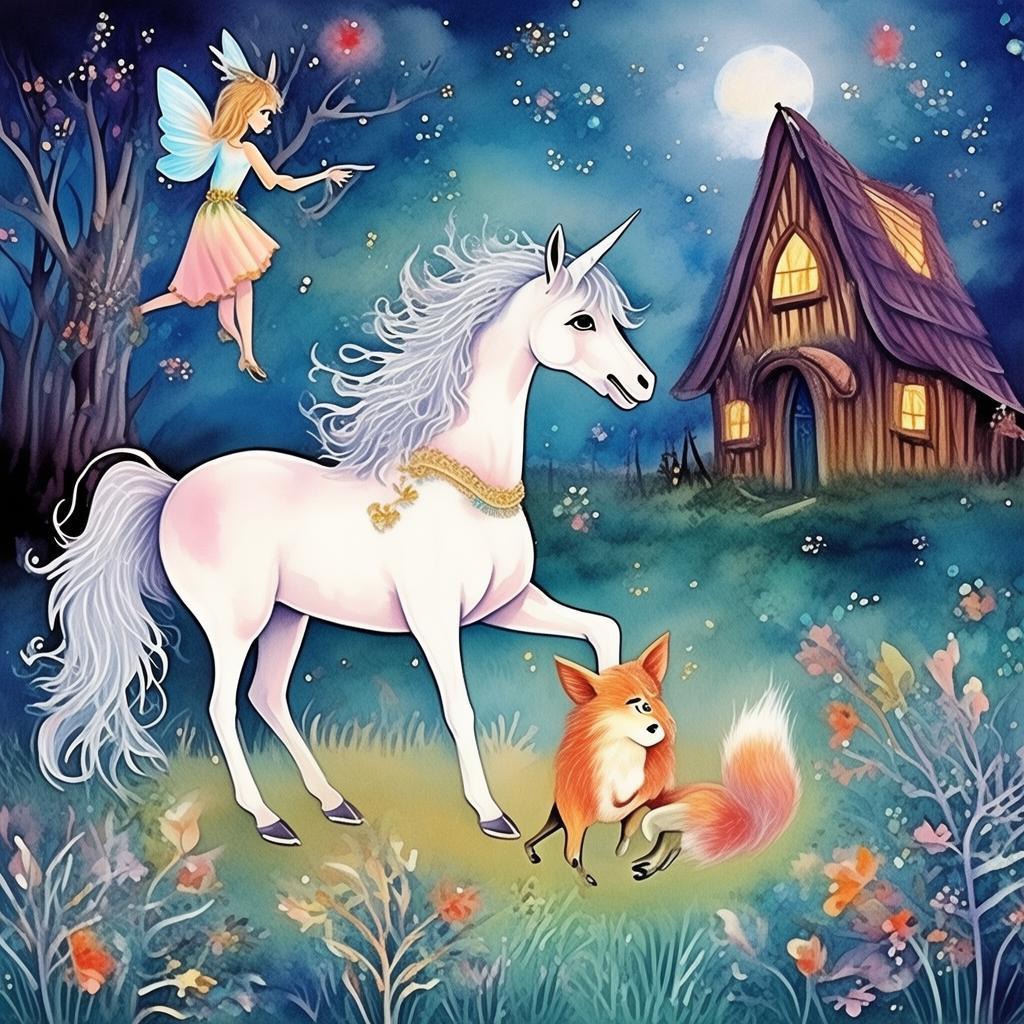The Paradox of the Silver Mirror
Once upon a time, in the kingdom of Logica, there stood a grand mirror, known as the Silver Mirror, which was said to reflect the very essence of truth and reality. The mirror was a marvel of the kingdom, its surface as clear as the most tranquil lake, and its power was revered by all.
The kingdom of Logica was a land where logic was the foundation of everything. The king, a wise and logical ruler, had built his empire on the principles of reason and order. The people were a society of scholars and thinkers, and the kingdom thrived under the rule of logic.
One day, a young girl named Elara, the daughter of the king, discovered an ancient scroll hidden within the royal library. The scroll spoke of a great paradox that would one day challenge the very fabric of reality. The paradox was a riddle that had baffled the greatest minds in Logica for centuries. It was a riddle that threatened to unravel the very threads of logic that held the kingdom together.
The riddle read:
"I am not what I seem,
Nor what I am not,
But what I am, I am not.
What am I?"
Elara was fascinated by the riddle and knew that it held the key to the kingdom's salvation. She sought the advice of the kingdom's most esteemed logician, Master Alaric, who had spent his life studying the mysteries of the Silver Mirror.
Master Alaric, with his bushy white beard and piercing blue eyes, was the keeper of the mirror. He had seen many paradoxes in his time, but this one was different. It was a paradox that could not be solved with logic alone.

"Elara," Master Alaric began, his voice as deep as the oldest well in the kingdom, "this paradox is not a riddle of logic, but a riddle of reality. It speaks to the nature of existence itself."
Elara knew that she had to find the answer, but as she pondered the riddle, she began to realize that the mirror was not just a source of truth, but a source of paradox. Each time she looked into the mirror, it seemed to reflect a different version of reality.
One day, as Elara stood before the Silver Mirror, she noticed a shadowy figure standing behind her. It was a figure cloaked in darkness, its eyes glowing with an unnatural light. The figure spoke in a voice that seemed to come from everywhere and nowhere at once.
"You seek the answer to the paradox, do you not?" the voice hissed. "But you must be wary, for the mirror does not reveal the truth; it reveals the paradox of truth itself."
Elara turned to face the figure, her heart pounding with fear and determination. "What is the paradox of truth, and how do I find the answer?"
The figure stepped forward, its presence as heavy as a great stone. "The paradox of truth is that truth is not absolute, but relative. It is shaped by perception, by belief, and by the very nature of reality."
Elara's mind raced as she tried to grasp the concept. She knew that the mirror was not just a reflection of reality; it was a creation of it. And the riddle, the paradox, was a reflection of the mirror itself.
As she continued to ponder, she realized that the answer lay not in the mirror, but in herself. She had to understand that truth was not a fixed point, but a journey. It was a journey that required empathy, understanding, and the courage to face the unknown.
With this newfound insight, Elara turned back to the mirror. She looked into its depths and saw not just her reflection, but the reflection of the kingdom, its people, and its leaders. She saw the logic that had brought them to this point, and the paradox that threatened to tear them apart.
Elara took a deep breath and spoke her answer aloud, her voice echoing through the chamber. "I am the paradox of truth. I am not what I seem, nor what I am not, but what I am, I am not. I am the sum of all perceptions, the embodiment of reality."
As she spoke, the mirror began to shimmer, its surface undulating with light and shadows. The cloaked figure vanished, leaving behind a trail of darkness that seemed to fade into the night.
The king, who had been watching from the shadows, stepped forward. "Elara, you have solved the paradox. You have shown us that truth is not a destination, but a path. We must embrace the paradox, for it is the essence of life itself."
And so, the kingdom of Logica was saved, not by logic alone, but by the courage and insight of a young girl who understood that truth was a journey, and that the paradox was the very essence of existence.
In the end, Elara became the guardian of the Silver Mirror, a symbol of the kingdom's newfound understanding of truth and reality. The mirror remained a place of reflection, not just for the king and his advisors, but for all who sought to understand the nature of their world.
And so, the kingdom of Logica continued to thrive, a testament to the power of logic, the beauty of paradox, and the endless journey of truth.
✨ Original Statement ✨
All articles published on this website (including but not limited to text, images, videos, and other content) are original or authorized for reposting and are protected by relevant laws. Without the explicit written permission of this website, no individual or organization may copy, modify, repost, or use the content for commercial purposes.
If you need to quote or cooperate, please contact this site for authorization. We reserve the right to pursue legal responsibility for any unauthorized use.
Hereby declared.









